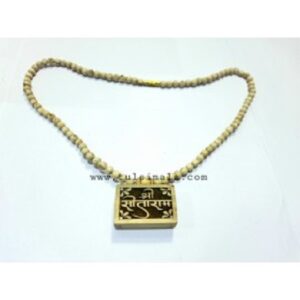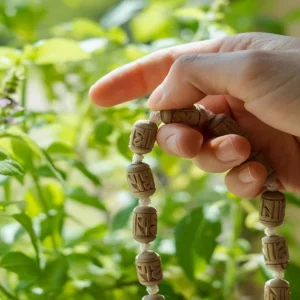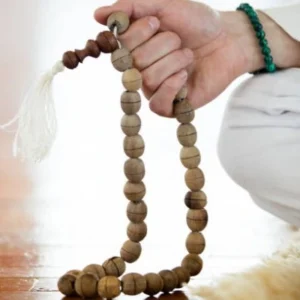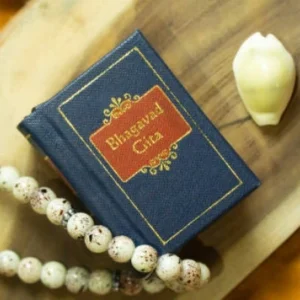No products in the cart.
Product Carousel Tabs
Week Deals limited, Just now
%
Hurry up! Offer ends in:
Original Tulsi Japa Beads Mala
Original Tulsi Locket Mala
Top Categories this Week
Tulsi Mantra Mala
Other Accessories
Reviews
It is very nice and we also got Prasad from Bankey Bihari ♥️
Jai Shree Radhe 🙏
Jai Shree Radhe 🙏
Hare krishna 🙏🏻 Go for it! Worth every penny. I ordered one 3-rounded Tulsi mala from Bengaluru and got delivered in mere 4 days. Owner ji is very helpful with order tracking and also sent Banke Bihari ji Prasad as token 🙏🏻 Package was smelling very nice and you can feel the calmness while opening.
i have bought 710rupees tulsi japamala(108)..quality is good no doubt in that ..but bead size is not same from starting to ending ,its decreasing .which is little disappointing .
Delivery was as they said ,for me it took 7days..
Try to do cash on delivery if they charge more also..
They are available in whatsapp ,they used give reply at night after 9pm.
overall quality good, delivery fair, packaging good.
only disappointed at bead size ..thats why i am giving 3star
Delivery was as they said ,for me it took 7days..
Try to do cash on delivery if they charge more also..
They are available in whatsapp ,they used give reply at night after 9pm.
overall quality good, delivery fair, packaging good.
only disappointed at bead size ..thats why i am giving 3star
Original pure tulsi kanthi mala..it is very bad....if anyone wants tulsi mala, you can buy it from this shop, fully satisfied....Radhe Radhe...
It's a good and nice product.. Feels good...
But if speed up the delivery process it's very better
But if speed up the delivery process it's very better
People here were very helpful, package arrived fast and the mala is really nice. Recommended seller! Ram, Ram. 🙏🏻
Very quick response and delivery. Extremely friendly communication. The item is perfect and as advertised. Only giving a four star because the shipping went to the wrong address.
This is the second time I'm buying from their website, I'm really happy with their works and service. The best part is that, you can customize the size according to your requirements. 🤍 Thank you @www.tulasimala.com... Fully satisfied by the by my orders.
Received a very good quality tulsi mala. He is a genuine seller. At first I was hesitating to order it online but he genuinely sent the best mala for me., he also suggested me for few things which helped to decide the better one. Thank you !! Radhe Radhe
Great Tulsi mala quality. Fully satisfied. The owner is a very kind person, I have appreciated his attitude and availability. Absolutely suggested 🙏🏻
Amazing Craftsmanship with 100% authenticity.. Team is very much cooperating.. They deliver what exactly we need & ask.. Thank You.. I'm truly grateful 😍
There are garlands of pure Tulsi and the seller is very kind and good person, he provides the right item at the right time, thank you very much.🙏🙏🙏🙏🌹
Fantastic product quality. Very very satisfied with the tulsi maala, which is 100% original. Would only request them to be a little more active on WhatsApp. May the blessings of Radharani flourish in your life. Radhe Radhe 🙏
Their quality is amazing at an affordable price. The customer service is also amazing, they are always reachable. Best place to get custom made tulsi Mala.






































































